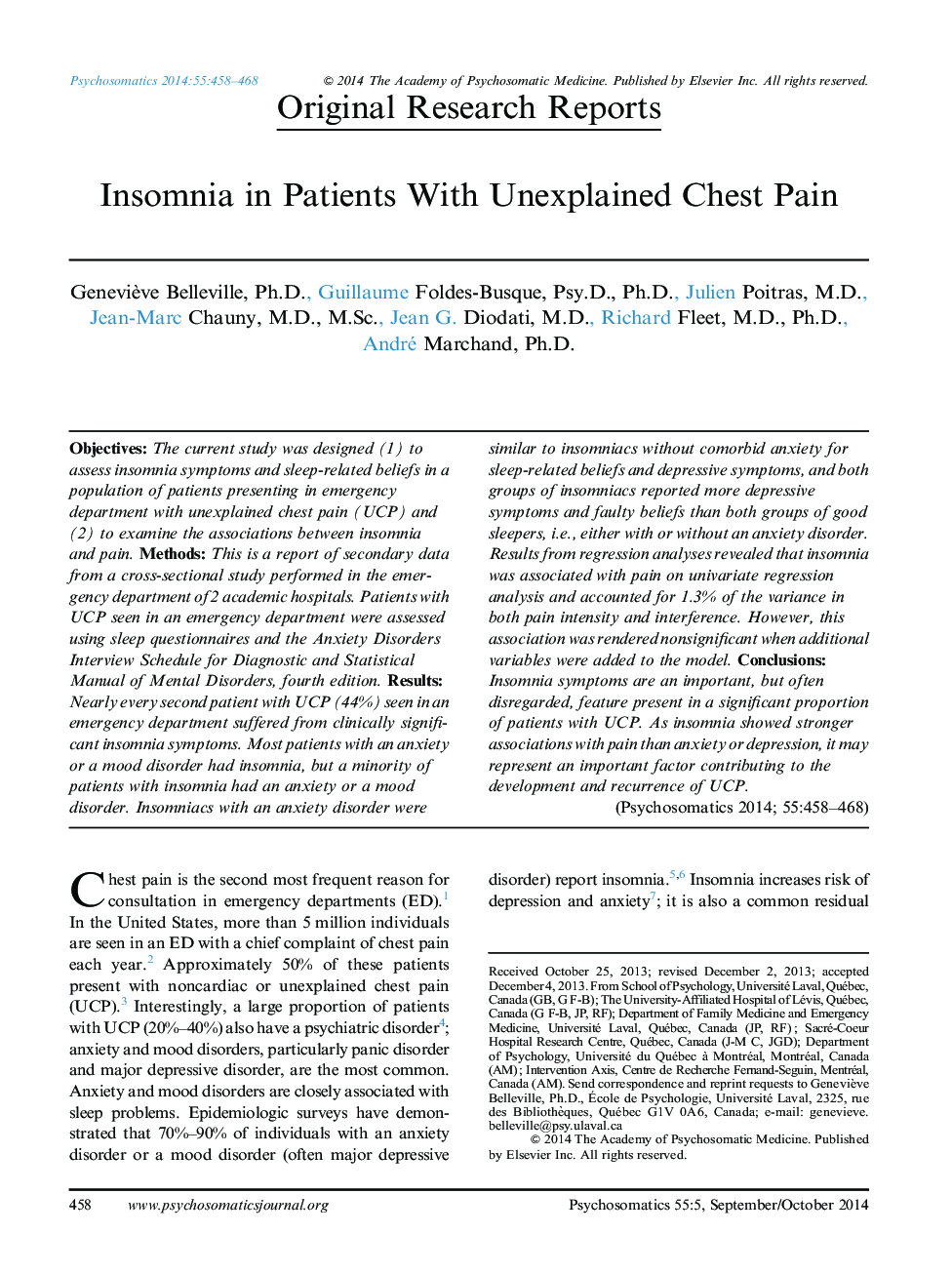| Article ID | Journal | Published Year | Pages | File Type |
|---|---|---|---|---|
| 337874 | Psychosomatics | 2014 | 11 Pages |
ObjectivesThe current study was designed (1) to assess insomnia symptoms and sleep-related beliefs in a population of patients presenting in emergency department with unexplained chest pain (UCP) and (2) to examine the associations between insomnia and pain.MethodsThis is a report of secondary data from a cross-sectional study performed in the emergency department of 2 academic hospitals. Patients with UCP seen in an emergency department were assessed using sleep questionnaires and the Anxiety Disorders Interview Schedule for Diagnostic and Statistical Manual of Mental Disorders, fourth edition.ResultsNearly every second patient with UCP (44%) seen in an emergency department suffered from clinically significant insomnia symptoms. Most patients with an anxiety or a mood disorder had insomnia, but a minority of patients with insomnia had an anxiety or a mood disorder. Insomniacs with an anxiety disorder were similar to insomniacs without comorbid anxiety for sleep-related beliefs and depressive symptoms, and both groups of insomniacs reported more depressive symptoms and faulty beliefs than both groups of good sleepers, i.e., either with or without an anxiety disorder. Results from regression analyses revealed that insomnia was associated with pain on univariate regression analysis and accounted for 1.3% of the variance in both pain intensity and interference. However, this association was rendered nonsignificant when additional variables were added to the model.ConclusionsInsomnia symptoms are an important, but often disregarded, feature present in a significant proportion of patients with UCP. As insomnia showed stronger associations with pain than anxiety or depression, it may represent an important factor contributing to the development and recurrence of UCP.
